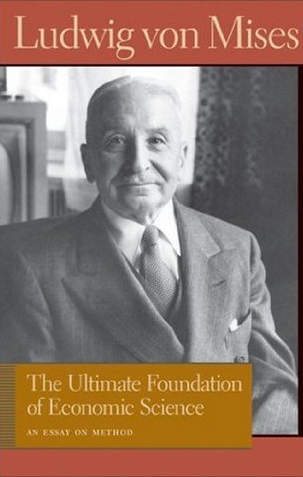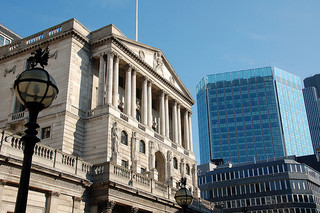It is often said central banks saved the world economy following the 2008 Global Financial Crisis. In reality, monetary policy has created an even larger bubble than that which burst in 2008. But the trend has now been going on for a generation – from the 1980s onwards, every recession […]
Read MorePost Tagged with: "Austrian School"
Book review: The Golden Revolution – How to prepare for the coming global gold standard, Butler
Conservative economic policy is easily recognised when stated as balanced budgets, low taxes and sound money. Today, these are a distant prospect. For all the work the Government have done, this year’s net financing requirement is £144.9 billion, larger than the health budget (£140bn) or education (£98bn). As my weekend brief […]
Read MoreBook review: Mises, The Ultimate Foundation of Economic Science
Remember the issue of The Economist with a textbook of “Modern Economic Theory” melting away? And HM the Queen asking why economists didn’t see this crisis coming? She might now ask why most economists have also demonstrated their inability to predict even the general pattern of events. Ludwig von Mises’ […]
Read MoreGood and bad economic news
Today, we learn, Europe’s leaders are poised this morning to cut the European Union’s budget for the first time in its 56 year history following a major victory for David Cameron. Great news and congratulations to the Prime Minister and the negotiating team. Let’s hope MEPs don’t block it. On […]
Read MoreEnding crony capitalism – how markets work
Crony capitalism — businesses capturing the state for commercial advantage, serving politicians and officials instead of the public — ought to be brought to an end. A prerequisite to that is a good understanding of how social cooperation in the market works. Israel Kirzner’s, How Markets Work: Disequilibrium, Entrepreneurship and […]
Read MoreThe missing link in the professional debate about the economic crisis: production time
Roger W Garrison’s Time and Money: The Macroeconomics of Capital Structure bursts with insight but this from the final chapter could be the missing link in the debate about the economic crisis: [D]oes the existence and variability of production time have a first-order claim on our attention? This is the question […]
Read MoreDocumentary on the financial crisis: The End of the Road
I have just watched a fascinating documentary about the financial crisis by Austrian School thinkers including Peter Schiff, author of the superb book How an Economy Grows and Why It Crashes: Two Tales of the Economy: The End of the Road. It was interesting and easy to follow. It was […]
Read MoreThis is a crisis of state intervention
In the past few posts, I reproduced the economist Ludwig von Mises’ 1949 explanation of “the crisis of interventionism”, which insisted that the “third way” is a system of economic organisation which cannot last. We must choose between either state socialism or a free society. State socialism would be chaos but […]
Read MoreThe Crisis of Interventionism, part 3: The End of Interventionism
Blogging will be light for a few days for reasons which will become apparent when I return to it. In the meantime, I wanted to offer some prescient writing from Mises’ 1949 masterpiece, Human Action on the crisis of well-intentioned economic intervention. Via Human Action chapter XXXVI: The End of Interventionism, […]
Read MoreThe Crisis of Interventionism, part 2: The Exhaustion of the Reserve Fund
Blogging will be light for a few days for reasons which will become apparent when I return to it. In the meantime, I wanted to offer some prescient writing from Mises’ 1949 masterpiece, Human Action on the crisis of well-intentioned economic intervention. Via Human Action chapter XXXVI: The Exhaustion of the […]
Read More


